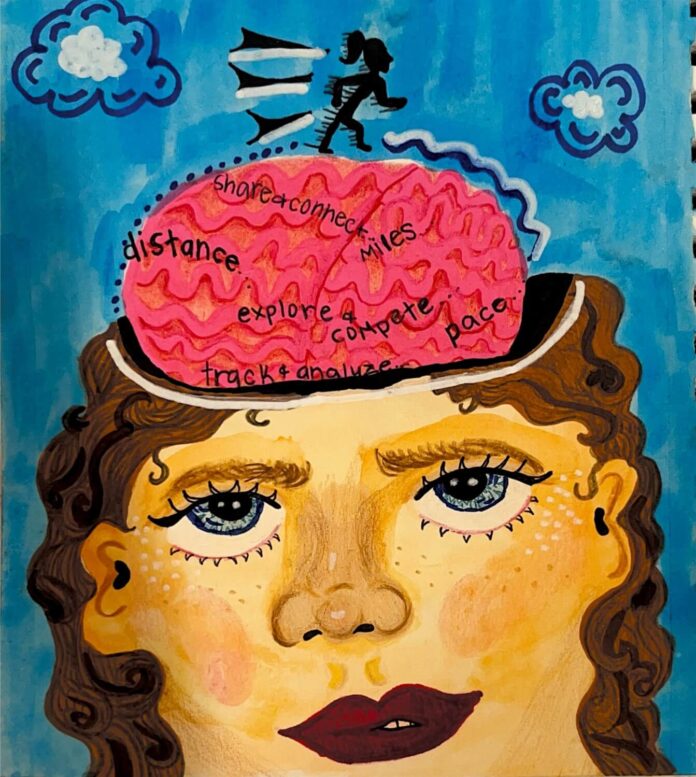I woke up early on Monday to go for a run around Eagle Rock. The sun was shining, and I wore my favorite shorts. I saw the LA River and called my mom around mile two. I listened to a lot of instrumental music, and some nice bikers gave me water.
This moment seems to be personal — I went for a run by myself and did it exclusively for me. But you, a stranger, could know all of this information as well as my mileage, map route and mile time down to segments of less than half a mile. Strava, the run tracking app where I log all of my miles, shares my runs to both friends and strangers. The app allows me to track my pace, mileage and progress. But Strava goes further than recording the basics of running — it has become another form of social media for me. My following is small, but we give each other ‘kudos,’ Strava’s parlance for likes, and I check the app even if I don’t run. I post my runs with a carousel of photos and what I like to think of as a witty caption.
Apps such as Strava, Goodreads, Beli and Letterboxd now offer spaces to track almost everything including running, books, restaurants and movies. This constant obsession and devotion to the collection of personal data feels strange to me, even as a user. Why do we all feel the need to share these personal aspects of our lives?
For me, at the essence of these apps lies the perversion of personal acts into something that is done for other people or for others to see. These apps are just another way that our personal data is transformed into public data, and it is masked by a sense of community and connection. The current interconnectivity of the world offers us all the ability to cultivate and curate a detailed public image. These apps provide additional data that go into my overall public image. I am not lying about the books that I read or the length of my Monday run. However, part of me must be influenced by these apps, and the knowledge that they are a part of how I present myself to the world. Do I go into the book store thinking about my Goodreads profile? Do I think about my mileage in terms of my Strava posts?
I like to think the answers to these questions are no and that my use of tracking apps have been relatively healthy. I don’t feel a sense of competition with my peers, but I know that with platforms such as these, especially ones that track athletic progress, the line between healthy and unhealthy easily fades. Some of my friends refuse to download Strava because they do not feel comfortable sharing their mile pace, especially in comparison to their friend’s profiles. Aversion to the tracking apps is fair, since fitness tracking has reached a whole new level of obsession. Through the apps, we have even more forms that can track us, as different devices such as Garmin watches and Oura rings collect and compile our health data, offering users yet another way to share their data with friends.
Yet, at the same time, the tracking apps are incredibly useful to me. They allow me to connect with my friends and get recommendations and responses from people I love. On Strava, I can see one of my best friends run through her college town in Ohio, complete with a photo and funny caption. Even though I can’t see her every day, I cherish this information, and if we were in person, it would not feel like data at all.
So, why do we continue to track? For one, tracking can promote consistency — which, when it comes to running and reading, is always a goal of mine. Beyond consistency alone, tracking — and sharing — our data is part of a social contract. While the form the data takes online is an issue, I believe that in order to be part of a community, we must share something. For me, my bargaining token is the data from my Monday run — even if it is shared through an app.
I hope that we can reframe our use of these apps in this light. When we share our data, we ought to consider it as something vulnerable and fun, something that adds to our community in a healthy way.
Contact Nora Youngelson at youngelson@oxy.edu
![]()































